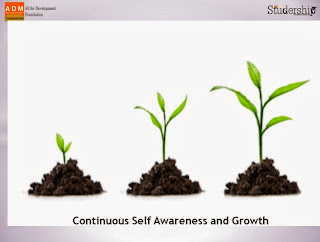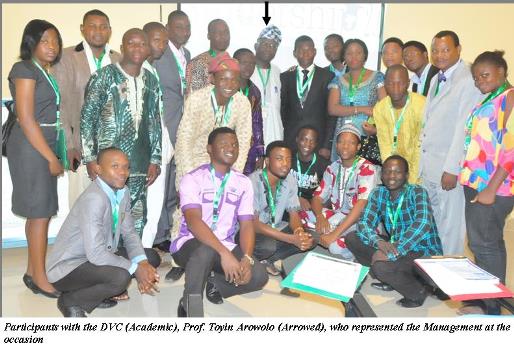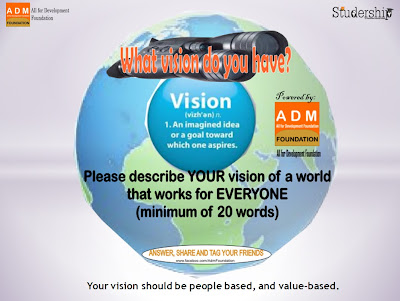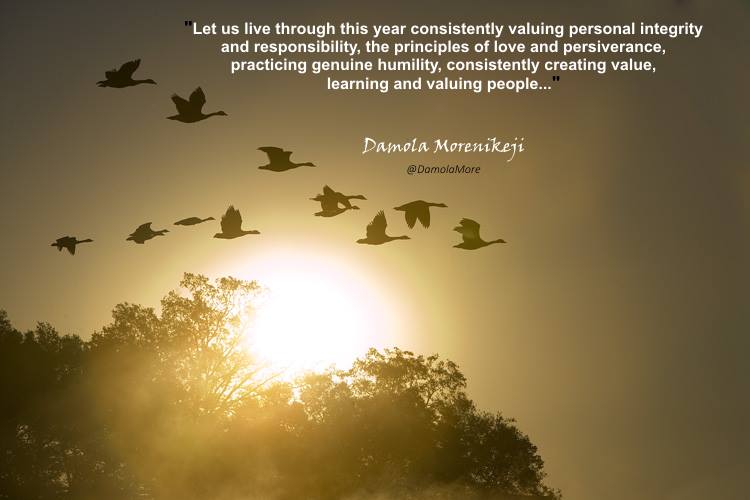
Tag: Studership

Damola (@DamolaMore)
Be Prepared for Leadership
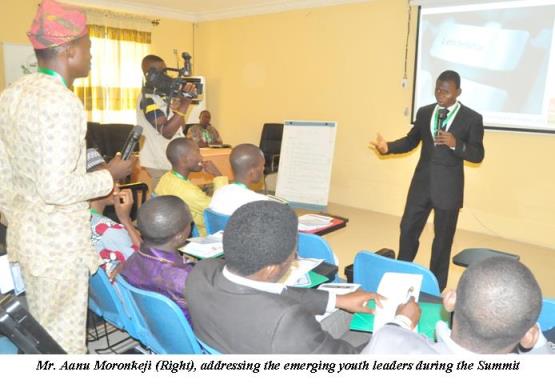
Making Your Days Here Count!
Exactly a week ago, i was sharing with some emerging leaders from across Nigeria, Ghana, Republic de Benin and Togo on ‘Integral Leadership’ at the #Studership 2.0 Leadership Summit (Pictures here).
I was delighted at the radiation of ‘senses’ of commitment as we exchanged ideas, on personal growth and leadership development – revolving around vision, values, ethics, passion for continuous learning and understanding purpose.
Like we do remind ourselves, that in everything we do, we (un)consciously sign our autographs. Make the unconscious conscious; what do you do to sign your autograph? Where/How do you sign it? It isn’t compulsory the autographs are conspicuous, but just MAKE YOUR DAYS HERE COUNT!
Later next week, we shall be having a guest post, related to the theme of leaving positive autographs, starting from the person sitting beside you.
Till then, I will be glad to read from you, with much love!
Keep growing, keep leading!
ADM
t: @damolamore
f: www.facebook.com/admnigeria
e:damolamore@gmail.com
 As we grow, we had been exposed to several erroneous definition and attribute of leadership and concepts around the field. These opinions have, overtime, affected our views of, and action towards growth, effectiveness, efficiency and making positive change.
As we grow, we had been exposed to several erroneous definition and attribute of leadership and concepts around the field. These opinions have, overtime, affected our views of, and action towards growth, effectiveness, efficiency and making positive change. On the commencement of the online discussions in the Studership 2.0 Leadership Programme, we deliberated on whether leaders were born or made. The major capacities and competencies of leadership can be learned, and we are all able to learn, at least if the basic desire to learn is there. Effective leadership is, however, is more than simply having the desire and enacting the ‘right’ behaviours, it needs to include a deep awareness of the impact of one’s behaviour on others. In turn, leadership development now needs to involve the development of the whole person, stressing self-awareness and balance in life (making the leader).
On the commencement of the online discussions in the Studership 2.0 Leadership Programme, we deliberated on whether leaders were born or made. The major capacities and competencies of leadership can be learned, and we are all able to learn, at least if the basic desire to learn is there. Effective leadership is, however, is more than simply having the desire and enacting the ‘right’ behaviours, it needs to include a deep awareness of the impact of one’s behaviour on others. In turn, leadership development now needs to involve the development of the whole person, stressing self-awareness and balance in life (making the leader).- What other myth is believed in your various communities/countries? Share with us.
- Think of a real life situation where a leader made a positive difference. Did they act as managers or leaders? What behaviours did they show? What lessons about leadership can you take away from the life situation you have thought of?.
 The week started with an online engagement with participants of the Studership 2.0 Leadership Programme – emerging leaders from 38 countries in five continents (Africa, Asia, Europe, North America and South America). It is believed that young people are the greatest assets of any nation, and our contribution to personal and global development is quintessential. As leaders however, we need to clarify, and identify where we stand, as we continue in the voyage of leadership, personal and global development.
The week started with an online engagement with participants of the Studership 2.0 Leadership Programme – emerging leaders from 38 countries in five continents (Africa, Asia, Europe, North America and South America). It is believed that young people are the greatest assets of any nation, and our contribution to personal and global development is quintessential. As leaders however, we need to clarify, and identify where we stand, as we continue in the voyage of leadership, personal and global development.the week – that as leaders, it is essential we have a vision. Theodore Hesburgh had advised that ‘the very essence of leadership is that you have to have a vision’, a vision that is people-based, value-based and creates a mental illustration (picture) of a world that works for everyone – an illustration which you can clearly articulate in every situation. Apart from having a vision, another step to developing the leader in you is that you need to seek clarity on your values. Identify and live your life by core values; you may make a commitment to live by the values of integrity, responsibility, credibility, appreciation, ‘exemplarity’, among others.
We are delighted to announce that after a careful review of several applications for participation in the Studership 2.0 Leadership Programme, motivation and resultant positive effects on communities around the world, One hundred and six (106) young leaders from thirty-eight countries have been globally selected to participate in the programme (list published on www.studership.blog.com).
- 22nd July, 2013 – Online discussion begins
- 29th July, 2013 – GrowthStudy commences
- 30th August, 2013 – Submission of GrowthStudy review
- 19th – 22nd September, 2013 – Studership 2.0 Leadership Summit in Abeokuta, Nigeria.

